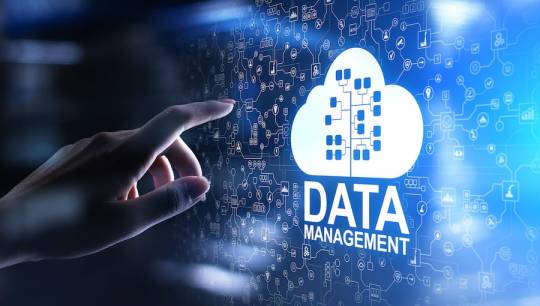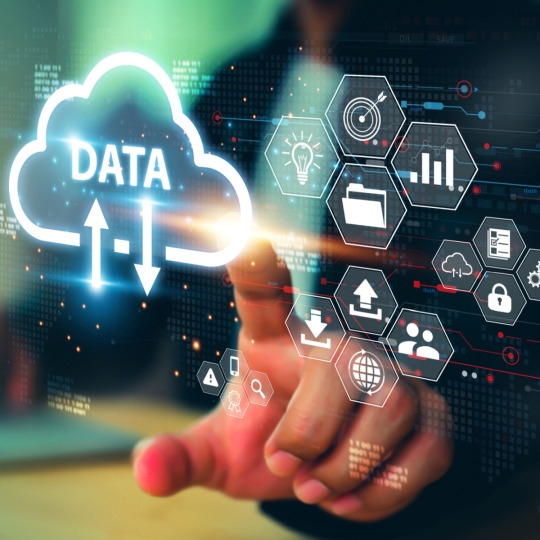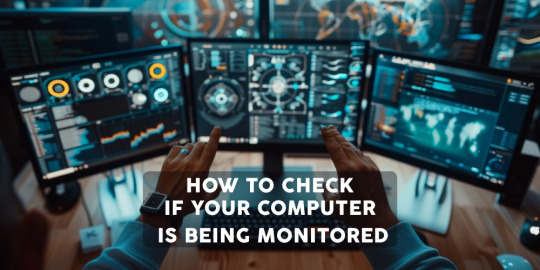#Digital data security
Explore tagged Tumblr posts
Text
Explore how Data PODs leverage blockchain technology for enhanced digital data security, ensuring decentralized control and protection of your information.
0 notes
Text




what my ad experience has been for the last month has felt like
#art#mermaid#mermaids#pomegranate#juniper#fish and chips#silly#birt#digital art#fantasy#monstergirl#monster girl#sketch#mermaid comics#mermaid comic#my ads have been wild since I secured my data#if I have to see ads like this i don't need to tag this as mature
93 notes
·
View notes
Text
An open letter to the U.S. Congress
Stop Elon Musk from stealing our personal information!
6,399 so far! Help us get to 10,000 signers!
I am writing to urge you to stop Elon Musk from stealing our personal information.
It appears Musk has hacked into millions of Americans’ personal information and now has access to their taxes, Social Security, student debt and financial aid filings. Musk's so-called Department of Government Efficiency was not created by Congress—it is operating with zero transparency and in clear violation of federal law.
This violation of our privacy is causing American families across the country to fear for our privacy, safety and dignity. If this goes unchecked, Musk could steal our private data to help in making cuts to vital government programs that our families depend on—and to make it easier to cut taxes for himself and other billionaires.
We must have guardrails to stop this unlawful invasion of privacy.
Congress and the Trump administration must stop Elon Musk from stealing Americans' tax and other private data.
▶ Created on February 10 by Jess Craven · 6,398 signers in the past 7 days
📱 Text SIGN PUTWGR to 50409
🤯 Text FOLLOW JESSCRAVEN101 to 50409
#PUTWGR#jesscraven101#resistbot#petition#activate your activism#stop the coup#Government Accountability#Data Privacy#U.S. Congress#Legislative Action#Public Policy#Federal Oversight#Constitutional Rights#Elon Musk#Department of Government Efficiency#Privacy Violation#Cybersecurity#Personal Data Protection#Taxpayer Rights#Social Security#Student Debt#Financial Aid#Government Transparency#Corporate Overreach#Public Advocacy#Citizen Action#Stop Data Theft#Congressional Investigation#Tech Regulation#Digital Privacy
5 notes
·
View notes
Text
Abathur

At Abathur, we believe technology should empower, not complicate.
Our mission is to provide seamless, scalable, and secure solutions for businesses of all sizes. With a team of experts specializing in various tech domains, we ensure our clients stay ahead in an ever-evolving digital landscape.
Why Choose Us? Expert-Led Innovation – Our team is built on experience and expertise. Security First Approach – Cybersecurity is embedded in all our solutions. Scalable & Future-Proof – We design solutions that grow with you. Client-Centric Focus – Your success is our priority.
#Software Development#Web Development#Mobile App Development#API Integration#Artificial Intelligence#Machine Learning#Predictive Analytics#AI Automation#NLP#Data Analytics#Business Intelligence#Big Data#Cybersecurity#Risk Management#Penetration Testing#Cloud Security#Network Security#Compliance#Networking#IT Support#Cloud Management#AWS#Azure#DevOps#Server Management#Digital Marketing#SEO#Social Media Marketing#Paid Ads#Content Marketing
2 notes
·
View notes
Text
PLEASE don't rely on Signal to keep you safe. Please please please please please don't trust any technology to be perfectly private and secure. TL:DR- Signal's developers, funders, board members, and workers are a rotating cast of Silicon Valley technocrats (Google & Amazon guys etc) and US State Department regime change freaks. While messages are encrypted, there is still metadata they collect, and they have given data to the state department before (!!!!). Even if they only have your phone number, that can be used with data from other sources to find out a LOT of info. TOR, VPNs, and crypto (duh) are all similarly too slimy to trust. I don't have a good alternative. we should use messenger pigeons or some shit idk.
3 notes
·
View notes
Text
Social Media and Privacy Concerns!!! What You Need to Know???
In a world that is becoming more digital by the day, social media has also become part of our day-to-day lives. From the beginning of sharing personal updates to networking with professionals, social media sites like Facebook, Instagram, and Twitter have changed the way we communicate. However, concerns over privacy have also grown, where users are wondering what happens to their personal information. If you use social media often, it is important to be aware of these privacy risks. In this article, we will outline the main issues and the steps you need to take to protect your online data privacy. (Related: Top 10 Pros and Cons of Social media)

1. How Social Media Platforms Scrape Your Data The majority of social media platforms scrape plenty of user information, including your: ✅ Name, email address, and phone number ✅ Location and web browsing history ✅ Likes, comments, and search history-derived interests. Although this enhances the user experience as well as advertising, it has serious privacy issues. (Read more about social media pros and cons here) 2. Risks of Excessive Sharing Personal Information Many users unknowingly expose themselves to security risks through excessive sharing of personal information. Posting details of your daily routine, location, or personal life can lead to: ⚠️ Identity theft ⚠️Stalking and harassment ⚠️ Cyber fraud

This is why you need to alter your privacy settings and be careful about what you post on the internet. (Read this article to understand how social media affects users.) 3. The Role of Third-Party Apps in Data Breaches Did you register for a site with Google or Facebook? Handy, maybe, but in doing so, you're granting apps access to look at your data, normally more than is necessary. Some high profile privacy scandals, the Cambridge Analytica one being an example, have shown how social media information can be leveraged for in politics and advertising. To minimize danger: 👍Regularly check app permissions 👍Don't sign up multiple accounts where you don't need to 👍Strong passwords and two-factor authentication To get an in-depth overview of social media's impact on security, read this detailed guide. 4. How Social Media Algorithms Follow You You may not realize this, but social media algorithms are tracking you everywhere. From the likes you share to the amount of time you watch a video, sites monitor it all through AI-driven algorithms that learn from behavior and build personalized feeds. Though it can drive user engagement, it also: ⚠️ Forms filter bubbles that limit different perspectives ⚠️ Increases data exposure in case of hacks ⚠️ Increases ethical concerns around online surveillance Understanding the advantages and disadvantages of social media will help you make an informed decision. (Find out more about it here) 5. Maintaining Your Privacy: Real-Life Tips

To protect your personal data on social media: ✅ Update privacy settings to limit sharing of data ✅ Be cautious when accepting friend requests from unknown people ✅ Think before you post—consider anything shared online can be seen by others ✅ Use encrypted messaging apps for sensitive conversations These small habits can take you a long way in protecting your online existence. (For more detailed information, read this article) Final Thoughts Social media is a powerful tool that connects people, companies, and communities. There are privacy concerns, though, and you need to be clever about how your data is being utilized. Being careful about what you share, adjusting privacy settings, and using security best practices can enable you to enjoy the benefits of social media while being safe online. Interested in learning more about how social media influences us? Check out our detailed article on the advantages and disadvantages of social media and the measures to be taken to stay safe on social media.
#social media#online privacy#privacymatters#data privacy#digital privacy#hacking#identity theft#data breach#socialmediaprosandcons#social media safety#cyber security#social security
2 notes
·
View notes
Video
youtube
DeepSeek App - Privacy concerns
#youtube#DeepSeek AI chatbot privacy data security technology futuristic digital encryption mystery Concern
3 notes
·
View notes
Video
youtube
🌈 Ready to Start Earning with GotBackUp? Here’s Your Guide! 💰
Imagine combining data security with financial freedom. GotBackUp isn’t just another backup service—it’s a whole new way to secure your data and earn an income by sharing it with others. 📂✨
What’s GotBackUp All About?
💼 Earn Residual Income by referring people to secure their files and memories.
🌍 Work from Anywhere—GotBackUp is perfect for remote workers, network marketers, and anyone looking for extra income.
🔒 Peace of Mind knowing that your data is safe and accessible whenever you need it.
How to Get Started:
Share GotBackUp with your network.
Help people see the value of protecting their digital lives.
Watch your income grow with every referral!
Curious? Reach out to me for more details, or click the link to explore how GotBackUp can start working for YOU today!
👉 https://bit.ly/3XNMpzO
Let’s make 2024 your year of financial growth and digital peace of mind! 🌟
#GotBackUp #PassiveIncome #DataSecurity #NetworkMarketing #RemoteWorkLife #EarnWithGotBackUp #FinancialFreedom #SideHustle #DigitalProtection #BackupSolutions
(via 🔥 Ready to Start Earning with GotBackUp? Here’s How! 💰)
#gotbackup#passive income#data security#network marketing#remote work life#earn with gotbackup#financial freedom#side hustle#digital protection#backup solution
3 notes
·
View notes
Text

The Comprehensive Guide to Web Development, Data Management, and More
Introduction
Everything today is technology driven in this digital world. There's a lot happening behind the scenes when you use your favorite apps, go to websites, and do other things with all of those zeroes and ones — or binary data. In this blog, I will be explaining what all these terminologies really means and other basics of web development, data management etc. We will be discussing them in the simplest way so that this becomes easy to understand for beginners or people who are even remotely interested about technology. JOIN US
What is Web Development?
Web development refers to the work and process of developing a website or web application that can run in a web browser. From laying out individual web page designs before we ever start coding, to how the layout will be implemented through HTML/CSS. There are two major fields of web development — front-end and back-end.
Front-End Development
Front-end development, also known as client-side development, is the part of web development that deals with what users see and interact with on their screens. It involves using languages like HTML, CSS, and JavaScript to create the visual elements of a website, such as buttons, forms, and images. JOIN US
HTML (HyperText Markup Language):
HTML is the foundation of all website, it helps one to organize their content on web platform. It provides the default style to basic elements such as headings, paragraphs and links.
CSS (Cascading Style Sheets):
styles and formats HTML elements. It makes an attractive and user-friendly look of webpage as it controls the colors, fonts, layout.
JavaScript :
A language for adding interactivity to a website Users interact with items, like clicking a button to send in a form or viewing images within the slideshow. JOIN US
Back-End Development
The difference while front-end development is all about what the user sees, back end involves everything that happens behind. The back-end consists of a server, database and application logic that runs on the web.
Server:
A server is a computer that holds website files and provides them to the user browser when they request it. Server-Side: These are populated by back-end developers who build and maintain servers using languages like Python, PHP or Ruby.
Database:
The place where a website keeps its data, from user details to content and settings The database is maintained with services like MySQL, PostgreSQL, or MongoDB. JOIN US
Application Logic —
the code that links front-end and back-end It takes user input, gets data from the database and returns right informations to front-end area.

Why Proper Data Management is Absolutely Critical
Data management — Besides web development this is the most important a part of our Digital World. What Is Data Management? It includes practices, policies and procedures that are used to collect store secure data in controlled way.
Data Storage –
data after being collected needs to be stored securely such data can be stored in relational databases or cloud storage solutions. The most important aspect here is that the data should never be accessed by an unauthorized source or breached. JOIN US
Data processing:
Right from storing the data, with Big Data you further move on to process it in order to make sense out of hordes of raw information. This includes cleansing the data (removing errors or redundancies), finding patterns among it, and producing ideas that could be useful for decision-making.
Data Security:
Another important part of data management is the security of it. It refers to defending data against unauthorized access, breaches or other potential vulnerabilities. You can do this with some basic security methods, mostly encryption and access controls as well as regular auditing of your systems.
Other Critical Tech Landmarks
There are a lot of disciplines in the tech world that go beyond web development and data management. Here are a few of them:
Cloud Computing
Leading by example, AWS had established cloud computing as the on-demand delivery of IT resources and applications via web services/Internet over a decade considering all layers to make it easy from servers up to top most layer. This will enable organizations to consume technology resources in the form of pay-as-you-go model without having to purchase, own and feed that infrastructure. JOIN US
Cloud Computing Advantages:
Main advantages are cost savings, scalability, flexibility and disaster recovery. Resources can be scaled based on usage, which means companies only pay for what they are using and have the data backed up in case of an emergency.
Examples of Cloud Services:
Few popular cloud services are Amazon Web Services (AWS), Microsoft Azure, and Google Cloud. These provide a plethora of services that helps to Develop and Manage App, Store Data etc.
Cybersecurity
As the world continues to rely more heavily on digital technologies, cybersecurity has never been a bigger issue. Protecting computer systems, networks and data from cyber attacks is called Cyber security.
Phishing attacks, Malware, Ransomware and Data breaches:
This is common cybersecurity threats. These threats can bear substantial ramifications, from financial damages to reputation harm for any corporation.
Cybersecurity Best Practices:
In order to safeguard against cybersecurity threats, it is necessary to follow best-practices including using strong passwords and two-factor authorization, updating software as required, training employees on security risks.
Artificial Intelligence and Machine Learning
Artificial Intelligence (AI) and Machine Learning (ML) represent the fastest-growing fields of creating systems that learn from data, identifying patterns in them. These are applied to several use-cases like self driving cars, personalization in Netflix.
AI vs ML —
AI is the broader concept of machines being able to carry out tasks in a way we would consider “smart”. Machine learning is a type of Artificial Intelligence (AI) that provides computers with the ability to learn without being explicitly programmed. JOIN US
Applications of Artificial Intelligence and Machine Learning: some common applications include Image recognition, Speech to text, Natural language processing, Predictive analytics Robotics.
Web Development meets Data Management etc.
We need so many things like web development, data management and cloud computing plus cybersecurity etc.. but some of them are most important aspects i.e. AI/ML yet more fascinating is where these fields converge or play off each other.
Web Development and Data Management
Web Development and Data Management goes hand in hand. The large number of websites and web-based applications in the world generate enormous amounts of data — from user interactions, to transaction records. Being able to manage this data is key in providing a fantastic user experience and enabling you to make decisions based on the right kind of information.
E.g. E-commerce Website, products data need to be saved on server also customers data should save in a database loosely coupled with orders and payments. This data is necessary for customization of the shopping experience as well as inventory management and fraud prevention.
Cloud Computing and Web Development
The development of the web has been revolutionized by cloud computing which gives developers a way to allocate, deploy and scale applications more or less without service friction. Developers now can host applications and data in cloud services instead of investing for physical servers.
E.g. A start-up company can use cloud services to roll out the web application globally in order for all users worldwide could browse it without waiting due unavailability of geolocation prohibited access.
The Future of Cybersecurity and Data Management
Which makes Cybersecurity a very important part of the Data management. The more data collected and stored by an organization, the greater a target it becomes for cyber threats. It is important to secure this data using robust cybersecurity measures, so that sensitive information remains intact and customer trust does not weaken. JOIN US
Ex: A healthcare provider would have to protect patient data in order to be compliant with regulations such as HIPAA (Health Insurance Portability and Accountability Act) that is also responsible for ensuring a degree of confidentiality between a provider and their patients.
Conclusion
Well, in a nutshell web-developer or Data manager etc are some of the integral parts for digital world.
As a Business Owner, Tech Enthusiast or even if you are just planning to make your Career in tech — it is important that you understand these. With the progress of technology never slowing down, these intersections are perhaps only going to come together more strongly and develop into cornerstones that define how we live in a digital world tomorrow.
With the fundamental knowledge of web development, data management, automation and ML you will manage to catch up with digital movements. Whether you have a site to build, ideas data to manage or simply interested in what’s hot these days, skills and knowledge around the above will stand good for changing tech world. JOIN US
#Technology#Web Development#Front-End Development#Back-End Development#HTML#CSS#JavaScript#Data Management#Data Security#Cloud Computing#AWS (Amazon Web Services)#Cybersecurity#Artificial Intelligence (AI)#Machine Learning (ML)#Digital World#Tech Trends#IT Basics#Beginners Guide#Web Development Basics#Tech Enthusiast#Tech Career#america
4 notes
·
View notes
Text

Discover how Data PODs empower users with decentralized data control through blockchain technology, ensuring privacy and security for your data.
0 notes
Text
How to check if your computer is being monitored
In today's digital age, the issue of privacy and security is more pressing than ever. Whether you’re a casual user or a professional, understanding if your computer is being monitored is crucial. This guide will delve into the signs of monitoring, tools to detect it, and steps to safeguard your privacy.

Understanding Computer Monitoring
Before diving into the signs and detection methods, it’s essential to understand what computer monitoring entails. Monitoring can involve tracking your online activity, keystrokes, file access, and even webcam usage. This can be done by malicious software (malware), spyware, or legitimate monitoring software used by employers or parents.
Types of Monitoring
Malware and Spyware: These are malicious programs that can be installed without your knowledge. They can track your activities and send data back to an attacker.
Keyloggers: This type of software records keystrokes, capturing sensitive information like passwords and personal messages.
Remote Access Tools (RATs): These tools allow someone to control your computer remotely, monitoring your screen, accessing files, and even using your webcam.
Legitimate Monitoring Software: Often used in corporate environments, this software tracks employee activity for productivity or compliance reasons. While legal, it can still infringe on personal privacy.
Signs That Your Computer May Be Monitored
Recognizing the signs that your computer might be monitored is the first step in protecting yourself.
1. Unusual System Behavior
Slow Performance: If your computer suddenly becomes sluggish, it might be due to monitoring software consuming resources.
Frequent Crashes or Freezes: Unexpected system crashes can indicate underlying issues, including malware.
2. Suspicious Programs
Unknown Applications: Check your installed programs for any unfamiliar applications. Many monitoring tools disguise themselves as legitimate software.
High Resource Usage: Use the Task Manager (Windows) or Activity Monitor (Mac) to look for processes consuming excessive CPU or memory.
3. Network Activity
Unexplained Network Traffic: Use network monitoring tools to check for unusual data being sent or received. High outbound traffic could indicate that data is being transmitted without your consent.
Blocked Ports: Monitoring software often uses specific ports to communicate. If you notice blocked ports that you didn’t configure, it could be a red flag.
4. Webcam and Microphone Behavior
Indicator Light Activation: If your webcam or microphone is being accessed without your knowledge, the indicator light may be on even when you're not using it.
Unexpected Recordings: Check for unusual files that could be recordings made by your microphone or webcam.
5. Browser Behavior
Unusual Browser Extensions: Check for extensions you didn’t install. Some can track your browsing activity.
Unexpected Redirects: Frequent redirects to strange sites or altered search results can indicate tracking.
6. Security Alerts
Antivirus Notifications: If your antivirus software frequently alerts you about threats, it may indicate that monitoring software is present.
Firewall Alerts: Unusual outgoing connection attempts can suggest that an unauthorized program is trying to access the internet.
Tools to Detect Monitoring Software
If you suspect that your computer is being monitored, several tools can help you investigate further.
1. Antivirus and Anti-Malware Software
Using a reliable antivirus or anti-malware program can help detect and remove malicious software. Some popular options include:
Malwarebytes: Excellent for detecting and removing malware and spyware.
Norton: Offers comprehensive protection against various types of threats.
2. Network Monitoring Tools
Tools like Wireshark can help analyze network traffic and identify suspicious activity. You can monitor data packets to see if there are any unexpected connections.
3. Task Manager / Activity Monitor
Regularly check the Task Manager (Windows) or Activity Monitor (Mac) for processes that look unfamiliar or suspicious. Research any questionable applications before taking action.
4. System Scans
Use built-in tools to perform system scans:
Windows Defender: Run a full scan for malware and spyware.
Mac’s Built-in Security Features: Use the Malware Removal Tool for additional scanning.
5. Firewall Monitoring
Make sure your firewall is active and monitor logs for any unusual activity. A firewall can block unauthorized access attempts and alert you to potential threats.
Steps to Protect Your Privacy
If you determine that your computer is being monitored or you want to prevent it from happening, follow these steps to enhance your security.
1. Update Your Software Regularly
Keeping your operating system and all software up-to-date ensures that you have the latest security patches. This reduces vulnerabilities that can be exploited by monitoring tools.
2. Use Strong Passwords
Implement strong, unique passwords for all your accounts and devices. Consider using a password manager to generate and store complex passwords securely.
3. Enable Two-Factor Authentication
Two-factor authentication (2FA) adds an extra layer of security by requiring a second form of verification, making unauthorized access much more difficult.
4. Install a Firewall
Ensure you have a firewall activated, whether it’s built-in (like Windows Firewall) or third-party. This helps control incoming and outgoing network traffic.
5. Be Cautious with Downloads
Avoid downloading software from untrusted sources, as this can introduce malware to your system. Always verify the legitimacy of software before installing it.
6. Regularly Review Permissions
Check application permissions on your device regularly. Revoke access for any apps that do not need to access your camera, microphone, or location.
7. Use a VPN
A Virtual Private Network (VPN) encrypts your internet connection, making it difficult for anyone to monitor your online activities.
8. Educate Yourself
Stay informed about the latest cybersecurity threats and best practices. Knowledge is your best defense against monitoring.
When to Seek Professional Help
If you suspect your computer is being monitored and cannot identify or remove the software yourself, consider seeking professional help. Cybersecurity experts can perform a thorough analysis of your system and provide tailored solutions.
Conclusion
Understanding if your computer is being monitored is vital for protecting your privacy. By recognizing the signs, utilizing detection tools, and implementing security measures, you can safeguard your personal information. Remember, vigilance is key in the ever-evolving landscape of digital security. Stay informed, proactive, and secure in your online presence.
#Computer Security#Online Privacy#Cybersecurity#Monitoring Software#Malware Detection#Privacy Protection#Digital Security#Keyloggers#Network Monitoring#Antivirus#VPN#Internet Safety#Personal Data Security#Remote Access Tools#Digital Awareness
2 notes
·
View notes
Text
19 tips for navigating the digital world for my rad comrades 💖
This month I spent some time looking into ways to divest from Google, which funds horrible things like Project Nimbus. Along the way, I learned some tips for digital safety and I wanted to share (teaching is a form of learning too). I am not an expert, just someone who tries (imperfectly) to be conscious about media and consumption. Google, Microsoft, Apple, Meta, Amazon, etc are tech giants…
#artificial intelligence#boundaries#browser#digital security#email#google#mental health#personal data#phone#science#social media#technology#vpn
2 notes
·
View notes
Text
But I don't wanna live in a dystopian world!!!
#i just saw this video about amazon having this pay with your palm technology#guys why would you give away your biometric data for convenience?!?!#we're really at this point where we will sell our privacy to save 30 seconds#and i know people have been saying this for forever#but what happens when that becomes the only way to pay?#like we are getting so close to what they describe in revelations it's scary#and yeah i get that people said that about barcodes and credit cards#but having your payment method be your literal hand?#that's too close for comfort#and it's literally not smart to give these companies that info#if they have a data breach who knows what a hacker can do with that?#i know this is a crazy scenario but what if a hacker gets ahold of your fingerprints and currupts the digital record for a crime?#on top of that you only need your fingerprints registered with the police for a few reasons like if you are a criminal or work with kids#you have the right to not have the government have your info without reason#but what happens when the government demands that Amazon (or Apple or any other company pulling this crap) give over their records?#now they have that whether you are a criminal or gave your permission or not#that would be a violation of your 4th amendment rights: to be secure in your person houses papers and effects against unreasonable seizures#don't think the government would do that? police in my area will absolutely violate that right by running plates#to see if you have an expired registration even if you weren't doing anything that required they run your plates#so yeah i fully believe the government would violate the 4th amendment#and what's more... i don't even think that they would have to demand the info i think amazon or apple would offer to sell that info to them#ok sorry for the rant#this world is just getting scary y'all
8 notes
·
View notes
Text
Navigating the Digital Landscape: Unraveling the Essence of Access Management with Sigzen Technologies
In an era dominated by digital transformation, the importance of robust access management cannot be overstated. Businesses worldwide are grappling with the challenges of securing sensitive data, maintaining compliance, and providing seamless user experiences. Enter Sigzen Technologies – a trailblazer in the realm of access management, offering cutting-edge solutions to address the evolving needs…

View On WordPress
#Access Control#Access Management#Access Management Solutions#Access Management Strategies#Cybersecurity Solutions#Data Protection#Digital Landscape#Digital Security#Identity Management#IT Security#Technology Insights
2 notes
·
View notes
Text
Eric Schmidt: AI misuse poses an ‘extreme risk’
New Post has been published on https://thedigitalinsider.com/eric-schmidt-ai-misuse-poses-an-extreme-risk/
Eric Schmidt: AI misuse poses an ‘extreme risk’
Eric Schmidt, former CEO of Google, has warned that AI misuse poses an “extreme risk” and could do catastrophic harm.
Speaking to BBC Radio 4’s Today programme, Schmidt cautioned that AI could be weaponised by extremists and “rogue states” such as North Korea, Iran, and Russia to “harm innocent people.”
Schmidt expressed concern that rapid AI advancements could be exploited to create weapons, including biological attacks. Highlighting the dangers, he said: “The real fears that I have are not the ones that most people talk about AI, I talk about extreme risk.”
Using a chilling analogy, Schmidt referenced the al-Qaeda leader responsible for the 9/11 attacks: “I’m always worried about the Osama bin Laden scenario, where you have some truly evil person who takes over some aspect of our modern life and uses it to harm innocent people.”
He emphasised the pace of AI development and its potential to be co-opted by nations or groups with malevolent intent.
“Think about North Korea, or Iran, or even Russia, who have some evil goal … they could misuse it and do real harm,” Schmidt warns.
Oversight without stifling innovation
Schmidt urged governments to closely monitor private tech companies pioneering AI research. While noting that tech leaders are generally aware of AI’s societal implications, they may make decisions based on different values from those of public officials.
“My experience with the tech leaders is that they do have an understanding of the impact they’re having, but they might make a different values judgement than the government would make.”
Schmidt also endorsed the export controls introduced under former US President Joe Biden last year to restrict the sale of advanced microchips. The measure is aimed at slowing the progress of geopolitical adversaries in AI research.
Global divisions around preventing AI misuse
The tech veteran was in Paris when he made his remarks, attending the AI Action Summit, a two-day event that wrapped up on Tuesday.
The summit, attended by 57 countries, saw the announcement of an agreement on “inclusive” AI development. Signatories included major players like China, India, the EU, and the African Union.
However, the UK and the US declined to sign the communique. The UK government said the agreement lacked “practical clarity” and failed to address critical “harder questions” surrounding national security.
Schmidt cautioned against excessive regulation that might hinder progress in this transformative field. This was echoed by US Vice-President JD Vance who warned that heavy-handed regulation “would kill a transformative industry just as it’s taking off”.
This reluctance to endorse sweeping international accords reflects diverging approaches to AI governance. The EU has championed a more restrictive framework for AI, prioritising consumer protections, while countries like the US and UK are opting for more agile and innovation-driven strategies.
Schmidt pointed to the consequences of Europe’s tight regulatory stance, predicting that the region would miss out on pioneering roles in AI.
“The AI revolution, which is the most important revolution in my opinion since electricity, is not going to be invented in Europe,” he remarked.
Prioritising national and global safety
Schmidt’s comments come against a backdrop of increasing scrutiny over AI’s dual-use potential—its ability to be used for both beneficial and harmful purposes.
From deepfakes to autonomous weapons, AI poses a bevy of risks if left without measures to guard against misuse. Leaders and experts, including Schmidt, are advocating for a balanced approach that fosters innovation while addressing these dangers head-on.
While international cooperation remains a complex and contentious issue, the overarching consensus is clear: without safeguards, AI’s evolution could have unintended – and potentially catastrophic – consequences.
(Photo by Guillaume Paumier under CC BY 3.0 license. Cropped to landscape from original version.)
See also: NEPC: AI sprint risks environmental catastrophe
Want to learn more about AI and big data from industry leaders? Check out AI & Big Data Expo taking place in Amsterdam, California, and London. The comprehensive event is co-located with other leading events including Intelligent Automation Conference, BlockX, Digital Transformation Week, and Cyber Security & Cloud Expo.
Explore other upcoming enterprise technology events and webinars powered by TechForge here.
#adversaries#agile#agreement#ai#ai & big data expo#ai action summit#AI development#ai governance#AI research#amp#approach#Artificial Intelligence#automation#autonomous#BBC#biden#Big Data#california#CEO#China#Cloud#Companies#comprehensive#conference#cyber#cyber security#data#deepfakes#development#Digital Transformation
6 notes
·
View notes